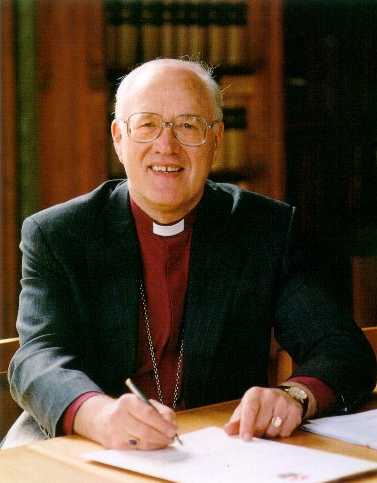LONDON: Lord Carey 'appalled' by Pope's treatment of Dr Rowan Williams
Ruth Gledhill, Religion Correspondent
The Times
http://www.timesonline.co.uk/tol/comment/faith/article6888208.ece
October 24, 2009
 Lord Carey of Clifton has called on his successor as Archbishop of Canterbury to complain to the Pope in person about not being consulted over plans to admit disaffected Anglicans to the Roman Catholic Church.
Lord Carey of Clifton has called on his successor as Archbishop of Canterbury to complain to the Pope in person about not being consulted over plans to admit disaffected Anglicans to the Roman Catholic Church.
Lord Carey warned that the Pope's strategy could damage relations with the Vatican. Lord Carey, who stepped down in 2002, urged Dr Rowan Williams to protest strongly when he visits the Pope in Rome next month.
Lord Carey was speaking after the joint press conference this week between Dr Williams and the Catholic Archbishop of Westminster, the Most Rev Vincent Nichols, to announce the move. Under an apostolic constitution decree, the Pope will set up personal ordinariates, or extra-geographical Roman Catholic dioceses, such as those that already exist in the military, to take in former Anglicans who oppose women bishops and accept the Petrine ministry of Rome.
Dr Williams appeared distressed when he said at the press conference, hosted by the Roman Catholic Church in Eccleston Square, that he had known nothing of the initiative until two weeks ago. He was notified formally only when Cardinal William Levada, Prefect of the Congregation for the Doctrine of the Faith, visited last weekend to fill in some of the detail.
The Times understands that the former Archbishop of Westminster, Cardinal Cormac Murphy-O'Connor, a former co-chairman of the AnglicanRoman Catholic International Commission, known as Arcic, tried unsuccessfully to stop the apostolic constitution being published. His protests and others' concerns delayed its publication, intended for last February.
The two archbishops presented the constitution as "a response by Pope Benedict XVI to a number of requests over the past few years to the Holy See from groups of Anglicans who wish to enter into full visible communion with the Roman Catholic Church".
They said: "The announcement ... brings to an end a period of uncertainty for such groups who have nurtured hopes of new ways of embracing unity with the Catholic Church."
Lord Carey said that he, too, had been caught unawares by the development, which some insiders believe has dealt a death blow to 40 years of official ecumenical dialogue under the auspices of the Council for Christian Unity, if not to the Anglican Communion itself. The council was not involved in preparing the constitution.
He sought, however, to make the best of the development. "I give it a very cautious welcome," he said. "It is worth considering because there are a number of deeply worried, anxious Anglo-Catholics who do not believe they have a constructive future in the Church of England with the ordination of women as bishops.
"I was pastorally concerned for them when I was Archbishop of Canterbury. I know Rowan is as well. So this could go a long way to helping."
The Times has learnt it was reports of bishops emerging in tears from the General Synod meeting last July that rejected all provision for traditionalists that finally provoked Rome into offering them a home.
Lord Carey said that there were two positive aspects to the new Apostolic Constitution. "This initiatve is almost a back door ecumenical gesture. What we have seen is the failure of the final report of Arcic. Straightforward ecumenism at the theological level is going nowhere. This fresh initiative could have surprising consequences."
George Austin, former Archdeacon of York, said: "Rome has done this cleverly because the Catholic bishops in England are liberal. The Pope has shown considerable leadership. That is what Popes do. What has surprised me is the sort of people, and number, who have said they will leave."
END













